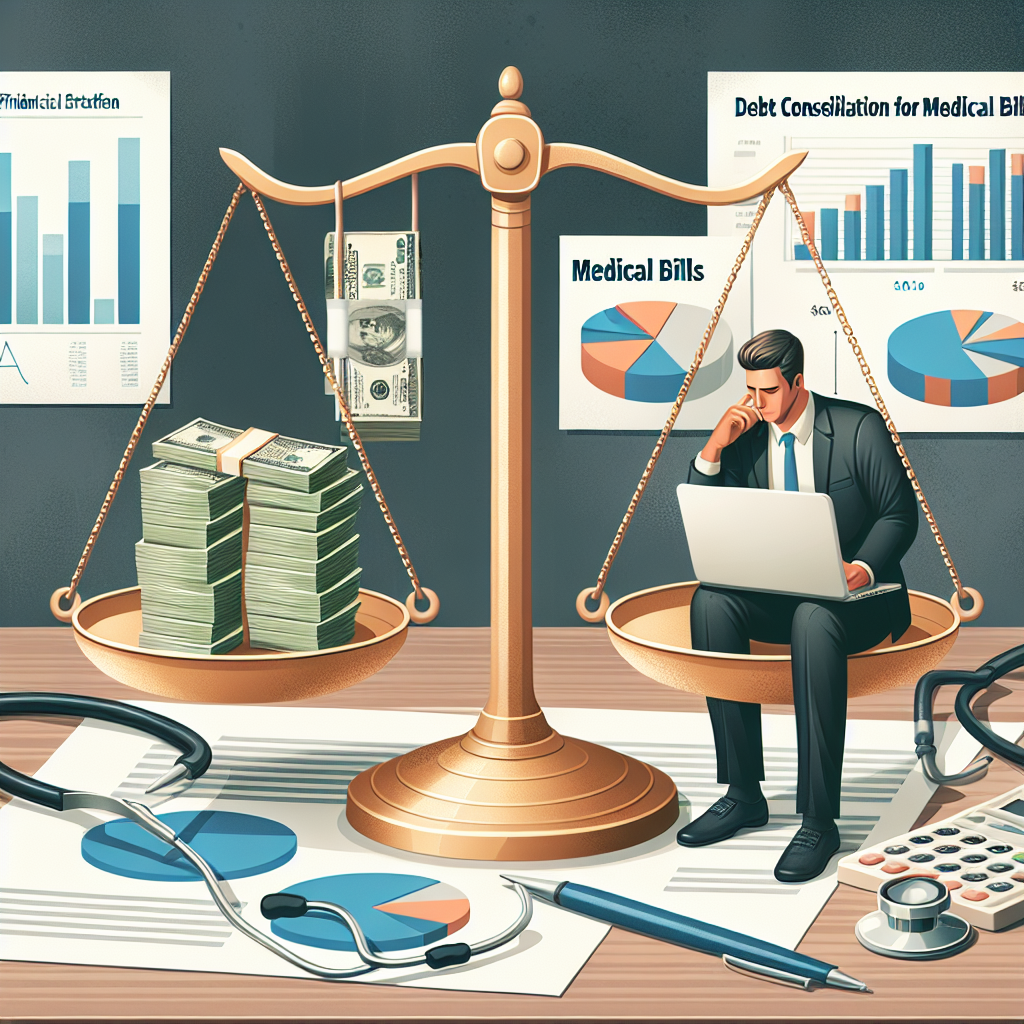The burden of medical bills can be overwhelming, often leading to financial stress and anxiety. If you find yourself struggling to manage these expenses, debt consolidation may be a viable solution. In this article, we’ll explore effective strategies for consolidating medical debts and achieving financial relief.
What is Debt Consolidation?
Debt consolidation is the process of combining multiple debts into a single loan or payment plan. This strategy can simplify your financial obligations and potentially reduce interest rates, making it easier to manage monthly expenses.
Understanding Medical Debt
Medical debt arises when individuals are unable to pay their medical bills, which may include hospital stays, surgeries, prescription medications, or other healthcare services. According to recent studies, medical debt is one of the leading causes of bankruptcy in the United States. Understanding the nature of your medical bills is the first step toward managing them effectively.
Why Consider Debt Consolidation for Medical Bills?
There are several benefits to consolidating medical debt:
- Lower Interest Rates: By consolidating high-interest medical debt into a lower-interest loan, you can decrease the overall amount you’ll pay over time.
- Single Monthly Payment: Consolidation reduces the number of monthly payments you have to manage, making it easier to stay on track.
- Improved Cash Flow: With a lower monthly payment, you’ll have more disposable income to put toward other essential expenses.
Strategies for Consolidating Medical Bills
1. Personal Loans
One of the most common ways to consolidate medical debt is through a personal loan. Borrowing a lump sum at a lower interest rate allows you to pay off all your medical bills at once. Make sure to compare different lenders to find the best rates and terms.
2. Balance Transfer Credit Cards
If you have good credit, you might consider using a balance transfer credit card with a 0% introductory rate. This allows you to transfer existing medical debt onto the new card and pay it off without accruing interest for a set period. Be sure to pay off the balance before the introductory rate expires to avoid high-interest charges.
3. Home Equity Loans or Lines of Credit (HELOC)
For homeowners, utilizing equity in your home can be an option for debt consolidation. Home equity loans or HELOCs generally offer lower interest rates; however, they involve using your home as collateral. Ensure that you are aware of the risks involved before pursuing this option.
4. Medical Credit Cards
Some healthcare providers offer medical credit cards specifically designed for financing medical bills. These cards often come with promotional interest rates for a limited time, allowing you to pay off your debt interest-free if repaid within the promotional period. Keep an eye on terms to avoid high-interest rates once the promotional period is over.
5. Negotiation and Payment Plans
Before resorting to consolidation, it’s worth reaching out to healthcare providers to negotiate your bills. Many providers are willing to work with patients who are struggling to pay. You might also request a payment plan, allowing you to spread payments over time without high-interest rates.
Creating a Budget for Medical Debt Repayment
A budget is a crucial tool for managing your finances and has a key role to play in the debt consolidation process. Track your income and expenses to identify areas where you can cut costs and allocate more funds toward paying off your medical debt.
Budgeting Tips:
- Prioritize Expenses: Identify essential expenses and prioritize debt repayment.
- Track Spending: Use apps or spreadsheets to monitor your spending habits.
- Emergency Fund: Establish a small emergency fund to prevent additional debt from unexpected expenses.
Seeking Professional Help
If you’re feeling overwhelmed by medical debt, consider reaching out to credit counseling agencies or financial advisors. These professionals can guide you through your options and help you create a feasible plan for getting out of debt.
Conclusion
Debt consolidation can be an effective strategy for those burdened with medical bills. By understanding the various options available and creating a comprehensive budget, you can take control of your financial future and work toward reducing your debt. Remember, the goal is not merely to consolidate debt but to achieve lasting financial relief.
Before making any financial decisions, make sure to thoroughly research your options and consider consulting with a financial professional to ensure that you choose the best path for your unique situation.

